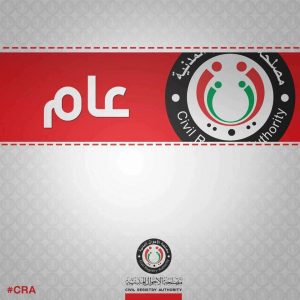By Sami Zaptia.

London, 17 January 2017:
The Civil Registry Authority (CRA) in eastern Libya has revealed that its inspections had discovered more than 4,000 forgeries in its paper archives in 2016. These were revealed as part of its drive to inspect its various branches.
The forged documents had led to the cancellation of over 4,000 forged returnee family registrations since February 2011 in its Beida branch alone, the CRA revealed. These registrations were made despite there being an order by the head of the CRA to suspend all family registrations after February 2011.
The CRA said that it is to continue in its inspections of its branches across the country in its efforts to root out any meddling and forgeries in its records in order to protect the Libyan national identity. Those implicated in falsifying records or using forged documentations will be legally pursued in accordance with the existing laws, the CRA warned.
The discovery of as many as 4,000 forged documents in CRA’s relatively small Beida branch will send alarm bells ringing for the CRA’s management. It suggests the possibility that there could be thousands more forged documents based on which Family Books, ID cards and passports may have been fraudulently issued.
It will be recalled that the CRA has been at the centre of a huge political battle as both political wings in the Libyan conflict have attempted to take control of the organization in charge of birth, marriage and death certificates. These are key to the establishment of a Libyan nationality and access to ID cards and passports.
This battle has been witnessed in Tripoli as various militias and political streams have attempted to infiltrate the CRA. In the first week of this month, the CRA was attacked again by armed militias in an effort to put in place an alternative manager at its Tripoli headquarters in the Drebi district of the capital.
In October last year, another armed attack on the headquarters in Tripoli led to the death of its acting manager. In 2015, four CRA IT engineers (two Libyans and two foreigners) were kidnapped by armed militias in Tripoli in an effort to coerce them into giving their kidnappers access to the CRA database. The internationally recognized government of the time said that it feared the kidnappers intended access to CRA database in order to issue forged IDs, passports or Libyan nationalities.







